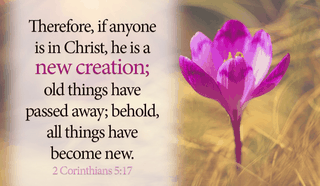
- Recent Translations
- All Translations
Kehillah in Corinth II 5:20
Share
Settings
Kehillah in Corinth II 5:20 Meaning and Commentary
Now then we are ambassadors for Christ
Since God has made reconciliation by Christ, and the ministry of it is committed to us, we are ambassadors for him; we come with full powers from him, not to propose terms of peace, to treat with men about it, to offer it to them, but to publish and proclaim it as made by him: we represent him, and God who made it by him,
as though God did beseech you by us;
to regard this embassy and message of peace, which we bring from him; to consider from whence it takes its rise, what methods have been used to effect it, and how it is accomplished; which should oblige to say and sing with the angels, "glory to God in the highest, on earth peace, and good will towards men"; and to behave in peaceable manner to all men, and one another:
we pray you in Christ's stead;
representing him as if he was present before you:
be ye reconciled to God;
you, who are new creatures, for whom Christ has died, and peace is made; you, the members of the church at Corinth, who upon a profession of faith have been taken into such a relation; be ye reconciled to all the dispensations of divine Providence towards you; let your wills bow, and be resigned to his, since he is the God of peace to you; and as you are reconciled by Christ as a priest, be reconciled to him as your King, and your God; to all his ordinances and appointments; to all the orders and laws of his house; conform in all things to his will and pleasure, which we, as his ambassadors, in his name and stead, have made known unto you. You ought to be all obedience to him, and never dispute anything he says or orders.

